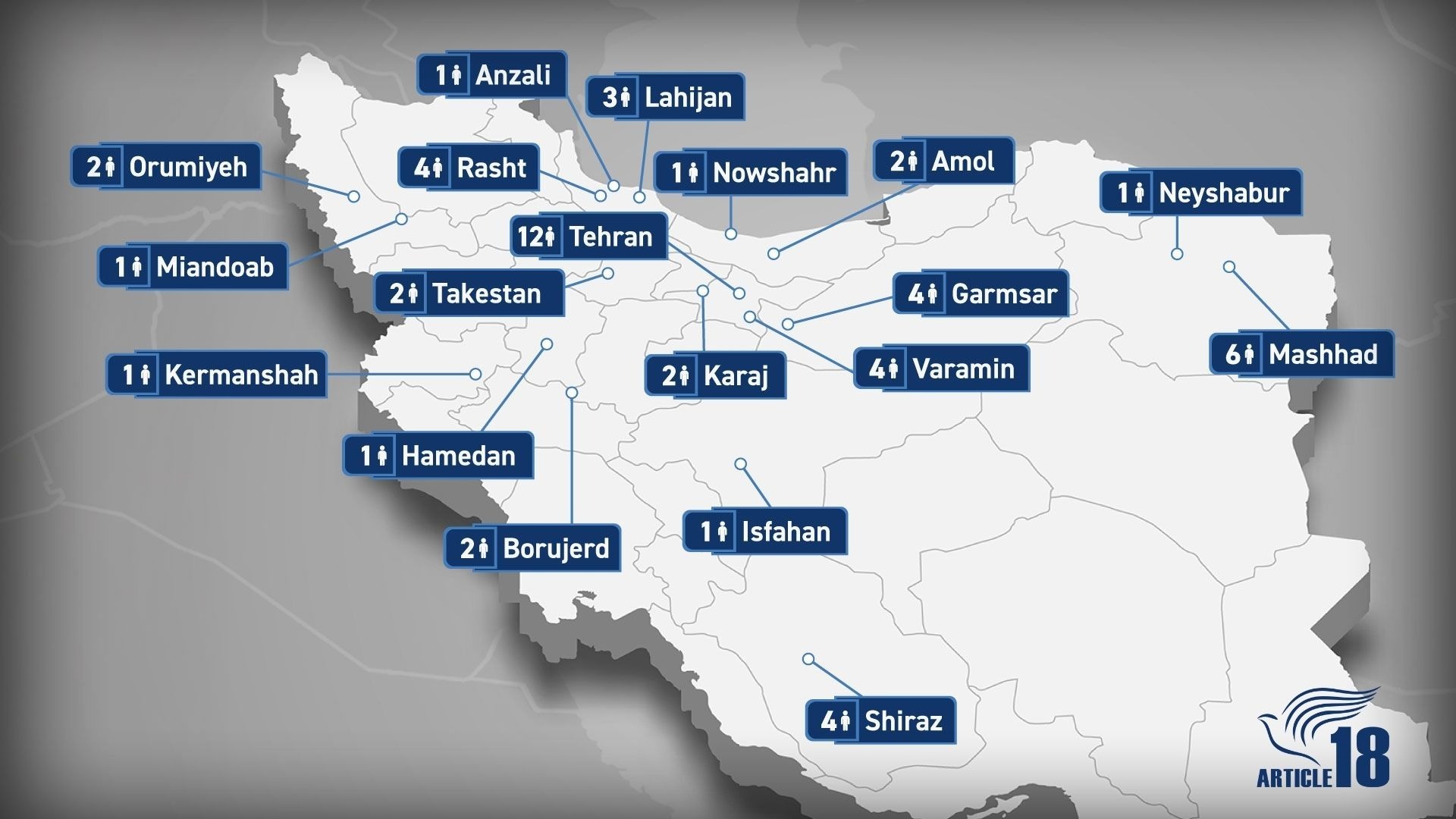Tehran “admits” arrest of over 50 Christians since war with Israel
Of these, only 11 have been released on bail. The others remain in prison and join the more than 60 already in jail before the conflict for reasons of faith. According to the Ministry of Intelligence, they are “Mossad mercenaries” trained abroad by churches in the United States and Israel. Article 18: their “crime” was to have participated “in a gathering” of faithful “in a neighbouring country”.
Tehran (AsiaNews) - The Iranian Ministry of Intelligence (MOIS) has admitted to arresting more than 50 Christians since the end of the ‘12-day war’ with Israel, accusing them of involvement in activities ‘contrary to security’ and ‘possession of weapons’.
The admission was made as part of a broader announcement on the activities undertaken by the intelligence agency after the conflict, including an alleged crackdown on Bahá'ís, Kurds, Baluchis, monarchists and journalists who participated in anti-regime activities. In addition, the Islamic Republic's police said they had detained at least 21,000 people identified as ‘suspects’ during the military escalation with the Jewish state, in a crescendo of internal repression.
As for Christians, the Mois claimed to have “neutralised” 53 “Mossad mercenaries” who had been “trained abroad” by churches in the United States and Israel and who had acted “under the guise of the Zionist Christian evangelical movement”.
Experts at Article18, a website specialising in documenting abuses and restrictions on worship in Iran, explain that the statement draws a distinction, as is often the case, between evangelical Christians, labelled as “Zionists”, and the historic communities of Armenian and Assyrian origin. The latter are considered “loyal supporters” of the country.
Armenian and Assyrian Christians in Iran, who today number less than 100,000 in total, are a recognised religious minority, allowed to gather to worship in their own language, but not to teach in the national Persian language; moreover, Iranian Muslims are not allowed to attend their churches.
Added to this is systematic control of religious activities and community life. Meanwhile, most Christians in the Islamic Republic today – around 800,000, often converts – are not recognised and have had no place of worship since the churches that once offered religious services in Persian were closed.
Mansour Borji, director of Article18, points out that "many churches around the world make their services accessible to the public online. Since converted Christians in Iran are forbidden to attend Armenian and Assyrian churches, many seek access to the teachings offered by churches abroad.
In this case, we know that some of the Christians arrested recently participated in a gathering in a neighbouring country organised by a foreign church.‘ This was a necessary choice, he recalls, precisely because ’they are forbidden to participate in such gatherings inside Iran. Upon their return,‘ he explains, ’they were arrested."
The Ministry of Intelligence is peddling ‘the absurd claim’ that Christians are ‘trained for anti-security purposes,’ the activist says, but the reality is that ‘they simply received advice on spiritual matters from abroad, as no one is available to them at home.’ Such statements, he continues, are an attempt by the ministry to ‘save face in front of their superiors, in the wake of the humiliating failures of the intelligence services in the 12-day war with Israel.’
‘The arrest of Christians may have been an attempt to present a more defensible version of their actions, and they targeted the most vulnerable and easy-to-find scapegoats: Christians,’ Mansour Borji concludes. And even if none of them ‘have yet been formally charged,’ the seriousness of the unfounded allegations ‘is alarming.’
Human rights lawyer Hossein Ahmadiniaz adds: ‘There is no independent or fair judicial system in the Islamic Republic of Iran. Therefore, all those arrested on charges of security, political, ideological or “espionage” offences are denied a fair trial, subjected to severe torture and do not even have access to an independent lawyer.’
At least 11 of the 54 Christians arrested have been released on bail. However, more than 40 others remain in prison, in addition to those – more than 60 according to the latest estimates – who are already serving prison sentences.
The cases of persecution against Christians confirm that there is a “clear regression” in religious freedom in Iran, in line with the growing repression by the authorities linked to the protests that erupted after the death of Mahsa Amini at the hands of the morality police.
This was also highlighted in the reports of the US Commission on International Religious Freedom, which call for the Islamic Republic to be reclassified as a “country of particular concern (CPC)” for its “systematic and egregious violations”.
The crackdown on religious minorities has been further strengthened following the so-called “12-day war” between Israel and the Islamic Republic, with Christians often considered “mercenaries” or “spies” in the pay of the Jewish state.
(Image taken from Article18)
29/06/2021 16:33
23/12/2023 15:30







.png)










